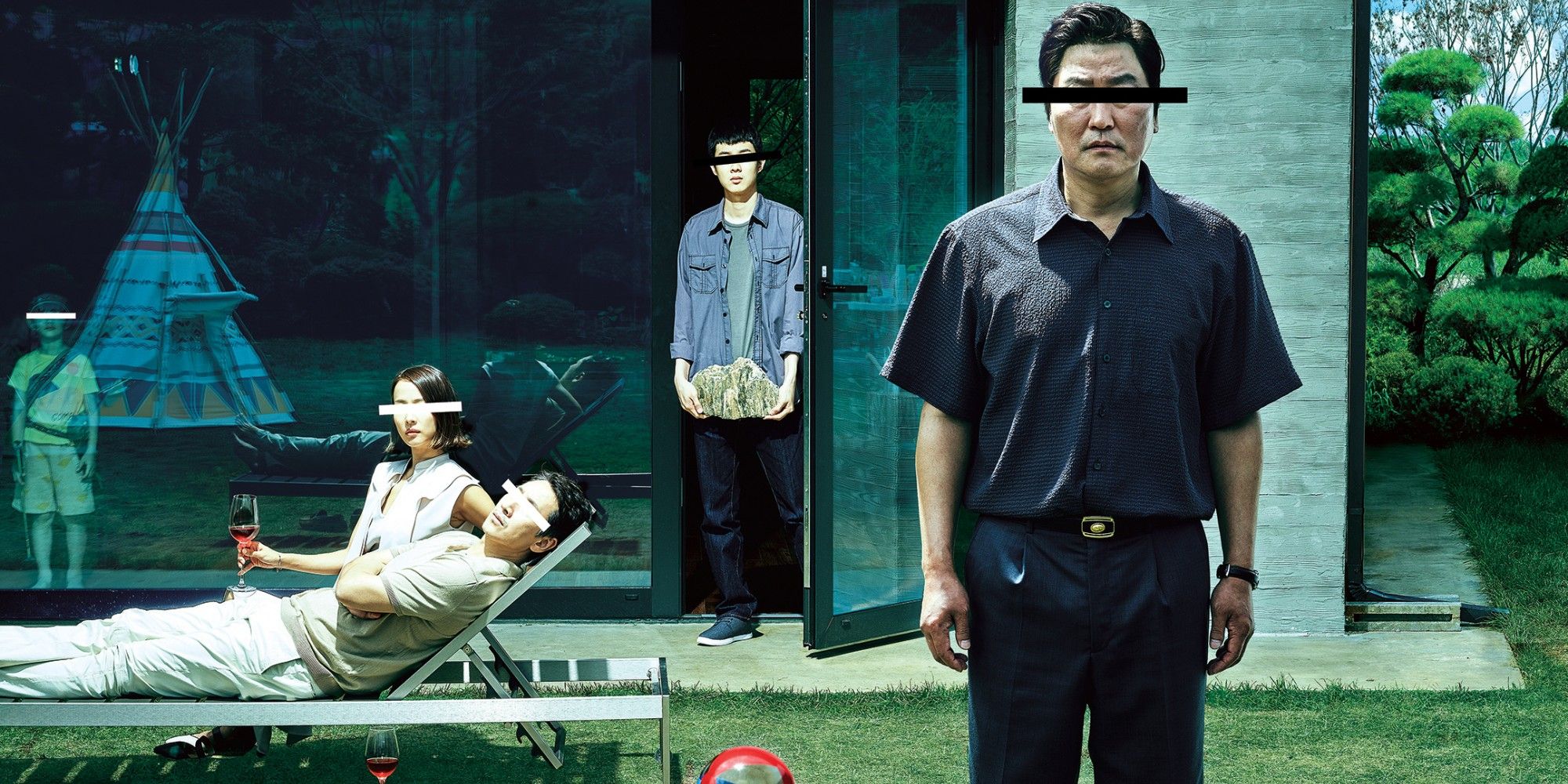Kim Ki-woo (Choi Woo-Sik), the young man who is the main character of PARASITE, several times refers to “metaphors,” and the film itself is, of course, a metaphor. Viewers are treated to a very thrilling, engaging, well-paced and well-plotted crime story on a surface level. However, at all times, bubbling up from beneath the slick surface of this genre film, there are deeply personal, meaningful truths that should resonate with almost any viewer. These insights are rarely foregrounded. They are so subtly interwoven that if you’re like me, you may be amazed when the final shots of the film roll and you realize that you are emotionally devastated by the intimate, humanist storey you’ve just witnessed. Bong Joon-ho’s filmmaking is so extraordinary here that he’ll make you fully invested in the lives of his characters without you even realizing he’s done so.
I want to avoid spoilers here, but suffice it to say that PARASITE is a masterpiece–beautifully lensed, enthrallingly edited, superbly acted, and intimately involving.
South Korea has a population that is one-sixth the size of the United States, and that population is stacked into skyscrapers in an area slightly smaller than the state of Kentucky. Higher education is widespread, so parents with means try to make their children stand above the pack by hiring them tutors and signing them up for extracurricular and afterschool programs. I lived in Korea once, and the children I taught there were sometimes engaged in learning ten to twelve hours a day, six days a week–public school, English-immersion private school, piano class, soccer team, taekwondo, math camp, chess club, and so on. I routinely worked sixty to seventy hours a week on salary, but at bars, I would meet young men my age who were expected to work for more than that, who slept at their desks so that they did not need to pry themselves from work for too long. As the father (Song Kang-ho) in the film at one point says, this is a country where fifty young men with college degrees apply for a mere security guard job. One can’t afford to struggle.
The themes of this story are not just localized to Korea, however. They are the story of global capitalism, and the spectre of American materialism (and imperialism; note the “Indians”) looms heavily over the film. Meritocracy makes cannibals of us all. It’s nice to dream, and sometimes the dreamers who plan and struggle well enough can indeed climb out of the basement and into the sunshine, and how nice an ending it is when they do. But the film also makes it clear that sometimes all that planning and dreaming maybe, just whims and fancy. More often, it seems, our pipe dreams are content to leave us with nothing more than the whiff of spewed sewage.




